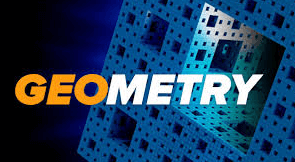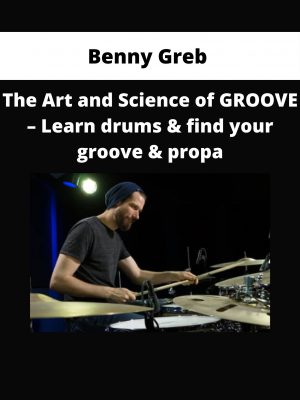Geometry An Interactive Journey to Mastery
$320 Original price was: $320.$59Current price is: $59.
Shopping Instructions:
- DISCOUNT 15% : SHOP15
- Product Delivery: Within 1 – 12 hours after purchase.
In Geometry: An Interactive Journey to Mastery, Professor Tanton guides students as they build an understanding of geometry from the ground up. File size: 16.70 GB
Geometry An Interactive Journey to Mastery
Inscribed over the entrance of Plato’s Academy were the words, “Let no one ignorant of geometry enter my doors.” To ancient scholars, geometry was the gateway to gaining a profound knowledge of the world.$1#$ Today, geometry’s core skills of logic and reasoning are essential to success in school, work, and many other aspects of life.
Hide Full Description
Like other math fields, geometry teaches us how to think. It leads students to uncover new truths based on already established ideas and facts. It requires us to test and examine the conclusions of others. It teaches us to lay out our thinking clearly, describing each step so that others can follow along and verify our results.
This systematic way of thinking is essential in many fields. Drawing conclusions from experimental data is the basis of scientific discovery. Our justice system depends on compelling evidence to render a verdict in a court of law. And we use logical reasoning in everyday conversations to win friends over to our point of view.
In fact, the great Greek scholar Euclid demonstrated just how much you can do with logic. He worked out that basically all of geometry stands on just 10 core principles. You can build the rest using straightforward, logical reasoning.
In short, geometry is among the great intellectual feats of humankind. However, geometry goes far beyond being just an intellectual exercise. Its real-world applications extend to navigation, architecture, engineering, physics, technology, and even art.
Botanists use the geometry of triangles to estimate the heights of trees.
Astronomers use an understanding of ellipses to describe the orbits of planets.
Quantum physicists use the mathematics of rotation to explain aspects of subatomic physics.
Architects use principles of symmetry to develop aesthetically pleasing buildings.
Engineers use the properties of parabolas to design headlights and satellite dishes.
With its powerful blend of intellectual accomplishment and practical application, it’s no wonder that most schools consider geometry a core subject. Yet as award-winning Professor James Tanton of The Mathematical Association of America shows in Geometry: An Interactive Journey to Mastery, geometry can be an exciting adventure at any age. Those who will benefit from his 36 clear and accessible lectures include
high school students currently enrolled in a geometry class;
their parents, who seek an outstanding private tutor for their students;
home-schooled students and others wishing to study high school geometry on their own;
collegestudents who are struggling with math requirements and who need to strengthen their grasp of this fundamental subject; and
anyone curious about the intellectual challenge of logic and reasoning that underlies mathematics, the sciences, and our technological world.
Professor Tanton’s excellent teaching style makes the course ideal for those students who have ever believed they’re “not good at math” or have had challenges understanding geometry in the past.
A Different Way to Learn Geometry
Even students who have done well in other math courses such as algebra can sometimes find geometry a challenge. More so than algebra and other equation-based math, geometry places particularly strong focus on making logical inferences from facts and building a story of reasoning. Plus, geometry involves a more visual approach—working with shapes and patterns from the real world.
Many geometry courses begin by teaching the results of geometric thinking—by listing a set of beginning rules first. But how can one build the foundations of a house without first having a sense of what the house should be? Professor Tanton encourages students to start by playing with ideas of the mind (and acts of the hand!) to develop a feel for geometric rules and a context for those rules.
Get immediately download Geometry An Interactive Journey to Mastery
In Geometry: An Interactive Journey to Mastery, Professor Tanton guides students as they build an understanding of geometry from the ground up. With this approach, the instruction focuses on the intellectual play of the subject and its beauty as much as its utility and function. Students begin with elementary building blocks like points, lines, and angles and observe how those basic units interact.
From a clear understanding of the fundamental principles, students use logical reasoning to expand their understanding of geometry. Like building a house brick by brick, each new discovery stands upon the others—without any sudden or confusing jumps.
In the first part of the course, students
develop an intuitive context for thinking about terms like point, line, angle, plane, and flat;
grasp how to create logical proofs; and
uncover the three deep and fundamental assumptions of geometry—the Pythagorean theorem, the parallelism postulate, and the similarity principles.
In the second part, students
study common geometric shapes and their properties (such as triangles, polygons, and circles);
explore the intersection of geometry and algebra;
examine the basics of trigonometry; and
learn how to calculate areas.
Once students understand the core principles, they are set loose to play in the third part of the course. Students ponder a range of fascinating and sometimes counterintuitive applications for geometry. They
combine two seemingly disparate fields: geometry and probability;
dive into the wild world of fractals;
investigate conics and their many practical applications;
use complex numbers to solve tricky geometry problems; and
contemplate spherical and even “taxi-cab” geometry.
Delightful Real-World Examples
A beauty of geometry is its wide variety of fascinating and unexpected applications. Some of the examples students explore in this course include these:
Width of a river: You’re on a walk and come across a river. Can you estimate how wide it is? See how you can—with no more than a bit of geometry and a baseball cap.
Geometry and nature: From the orbits of planets to the shape of your small intestine, geometric shapes appear in some surprising places throughout nature. See how geometry helps us better understand the marvels and mysteries of the world around us.
Modern cell phones: Swiping the screen on a cell phone seems to be an ordinary activity. But did you know your phone is actually relying on some clever geometry? Find out exactly what your phone is doing and the mathematics behind it.
Works of art: When people think of applications for mathematics, they often mention the fields of science or engineering. But geometry also has its place in the visual arts. See how great artists like M.C. Escher used geometric shapes and principles to create masterpieces.
A game of pool: If you’re playing pool and want to play a trick shot against the side edge, how do you need to hit the ball? See how you can determine this and more using the reflection principle.
A Teacher of Teachers
Professor Tanton is committed to sharing the delight and beauty of geometry and works with teachers across North America to develop more effective teaching methods for geometry and other math courses.
He is not only a teacher of math, but a teacher of the best ways to teach math. His experience has taught him where students most frequently flounder, which has given him the skills to explain mathematical concepts in a way that removes mental roadblocks to success.
Making each example come to life, Geometry: An Interactive Journey to Mastery engages students in a visual adventure. Professor Tanton uses bright and colorful slides, easy-to-understand whiteboard drawings, and interactive demonstrations to make his explanations crystal clear. And to help students better understand geometric principles, a workbook complete with sample problems and solutions accompanies the course.
Equipped with a firm understanding of geometry, students walk away from the course with the tools and knowledge to continue on to greater challenges in mathematics, school, and life. Your journey into this world of joy and wonder has only begun.
Related products
Other Courses
Other Courses
Other Courses
Other Courses
Other Courses
Other Courses
Other Courses












